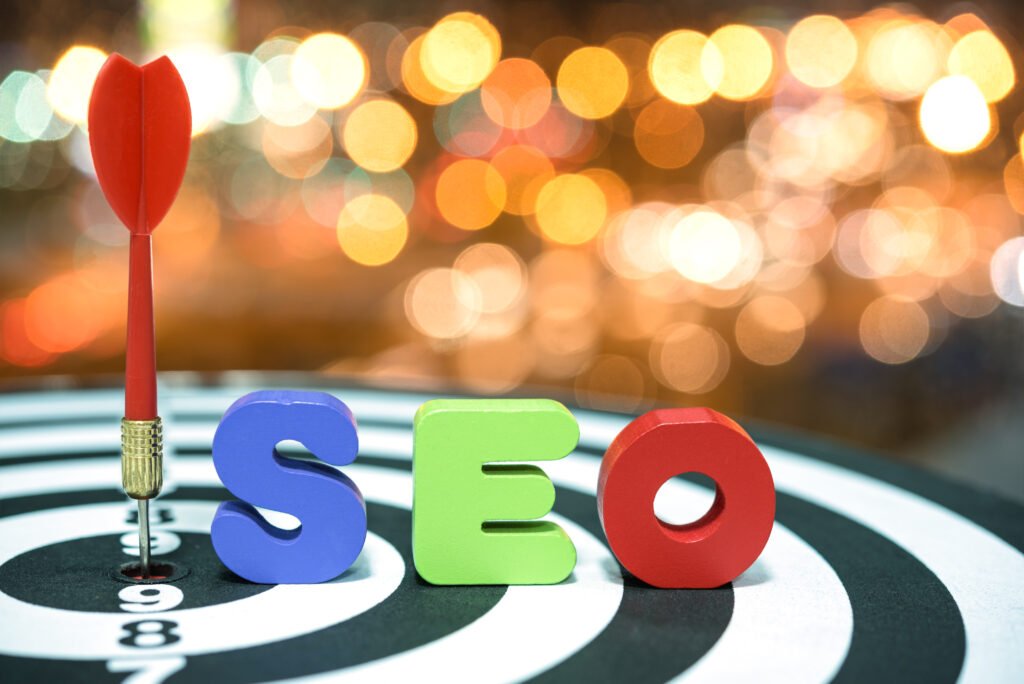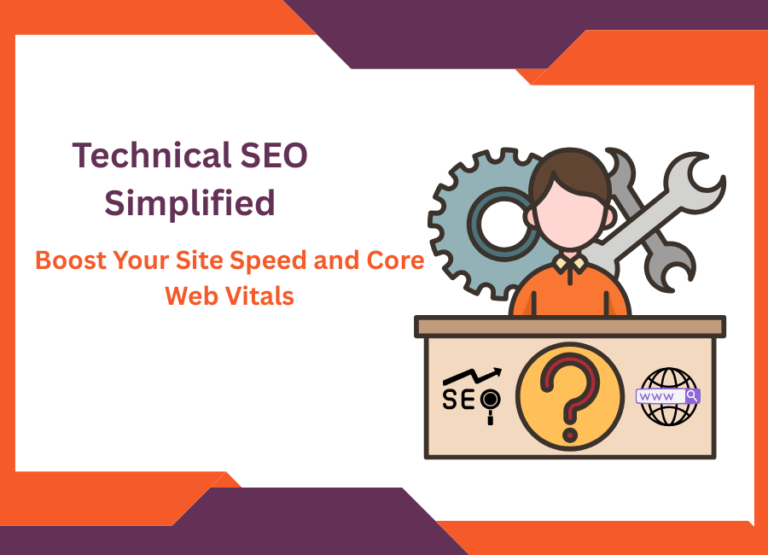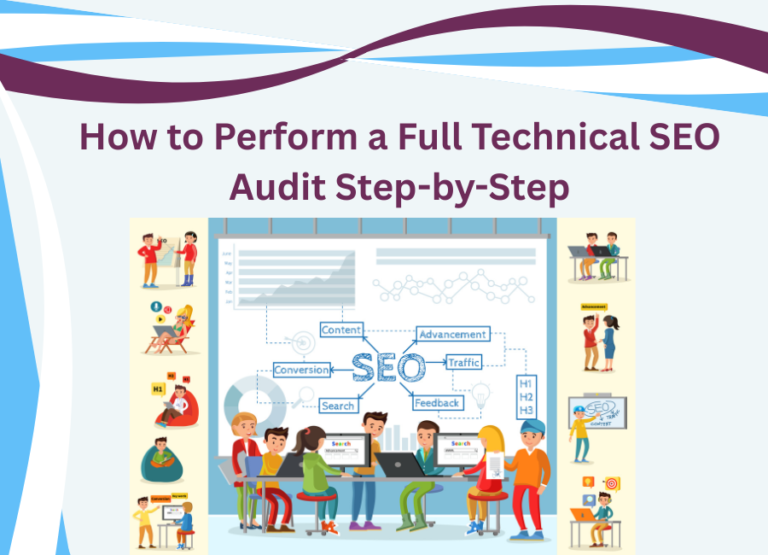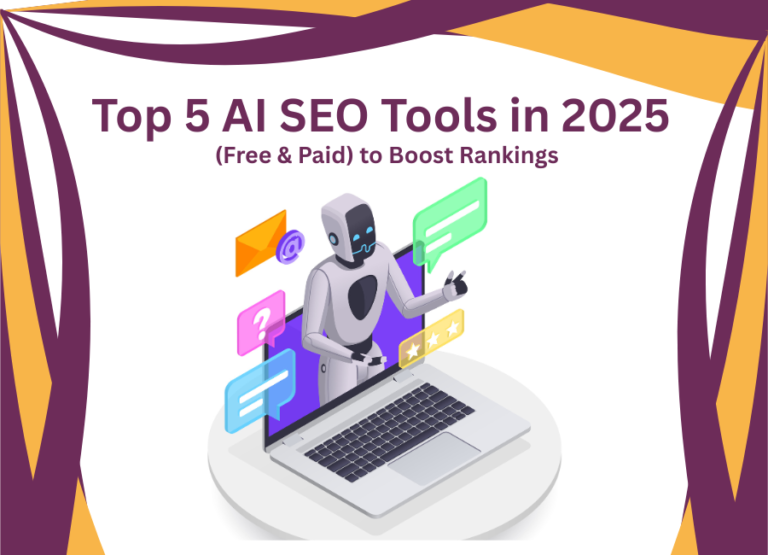Have you ever wondered why some online stores seem to pop up on every Google search while others barely get noticed? It’s not luck — it’s smart SEO Optimization for eCommerce.
Think of it as your digital salesperson working 24/7, attracting shoppers who are already searching for what you sell. In this guide, we’ll break down everything from what eCommerce SEO actually is to the best strategies that help you rank higher, sell faster, and stay ahead of the competition.
What is eCommerce SEO?
eCommerce SEO (Search Engine Optimization for eCommerce) is the process of optimizing your online store to improve its visibility on search engines.
It ensures that your product pages, category pages, and blog content rank for relevant search terms that potential buyers are using.
For instance, when users search “best running shoes for women” — your optimized store should appear at the top, ready to convert that visitor into a customer.
Key Focus Areas of eCommerce SEO:
- Optimized product and category pages
- Mobile-friendly design
- Site speed and performance
- Clean URL structure
- Schema markup and internal linking
Why SEO Optimization for eCommerce is Essential
Without SEO, your store is invisible to your target audience. Here’s why it matters:
- Drives Quality Organic Traffic: SEO brings in customers who are already searching for your products.
- Boosts Conversions: Targeted traffic equals higher sales potential.
- Improves Brand Authority: Ranking high builds consumer trust.
- Delivers Long-Term ROI: Unlike ads, SEO keeps generating traffic without ongoing costs.
- Enhances User Experience: Better site speed and structure improve customer satisfaction.
Benefits of SEO Optimization for eCommerce Websites
- Higher Visibility: SEO helps your products appear in top search results.
- Reduced Ad Spend: Organic ranking minimizes dependency on paid ads.
- Increased Customer Retention: Visitors who find your site through organic search are more likely to return.
- Better User Experience: SEO ensures smoother navigation and faster load times.
- Improved Credibility: Ranking on Google’s first page positions your brand as a trusted player.
How Does SEO Work for eCommerce Websites?
eCommerce SEO combines on-page, off-page, and technical optimizations to make your website search-friendly.z
Here’s a step-by-step breakdown:
- Keyword Research: Identify keywords that match buyer intent.
- On-Page SEO: Optimize titles, meta tags, and descriptions.
- Technical SEO: Improve crawlability, speed, and mobile performance.
- Content Optimization: Use blogs and guides to attract long-tail searches.
- Backlink Building: Earn links from credible sources to boost domain authority.
- Analytics & Tracking: Measure traffic, conversions, and engagement.
Key Elements of Successful eCommerce SEO Optimization
1. Comprehensive Keyword Research
Use tools like Ahrefs, Ubersuggest, and Google Keyword Planner to find high-intent and low-competition keywords.
- Focus on transactional (buy now) and informational (learn about) keywords.
- Include location-based keywords for local rankings.
- Use long-tail keywords for specific niches (e.g., “eco-friendly yoga mats online”).
2. On-Page Optimization
Every product page should communicate both to search engines and users.
- Craft keyword-rich meta titles and descriptions.
- Use structured headers (H1, H2, H3).
- Include image alt text for accessibility.
- Optimize internal links for improved crawling.
Tip: Add “Frequently Bought Together” or “Similar Products” widgets to increase engagement.
3. Technical SEO for eCommerce
Ensure your website is fast, mobile-optimized, and secure.
- Optimize loading times under 3 seconds.
- Implement HTTPS for secure transactions.
- Create an XML sitemap and robots.txt file.
- Fix broken links and 404 pages.
- Use structured data (product, review, and breadcrumb schema).
4. Content Marketing for eCommerce SEO
Create valuable content that targets buyer pain points.
- Publish blogs (e.g., “Top 10 Summer Skincare Essentials”).
- Write how-to guides and shopping tips.
- Leverage videos and infographics for engagement.
- Create FAQ sections on category pages.
Content-driven SEO builds trust and educates your customers.
5. Off-Page SEO & Link Building
Earn backlinks from reputable sources to improve domain authority.
- Collaborate with influencers.
- Guest post on niche websites.
- Get listed on local directories and business listings.
- Encourage satisfied customers to share your products online.
Partnering with eCommerce SEO companies helps you gain high-quality links that make a difference in rankings.
Advantages of Partnering with an eCommerce SEO Agency
Hiring a professional SEO agency for eCommerce can accelerate your growth and save you time.
Here’s how a specialized eCommerce SEO agency helps:
- Conducts detailed audits and keyword mapping
- Optimizes technical and on-page SEO
- Builds content and link strategies
- Monitors performance through analytics
- Ensures consistent ranking improvements
With experts handling your SEO, you can focus on scaling your business operations confidently.
Step-by-Step Guide to Implement eCommerce SEO
- Audit your current website for performance issues.
- Research and assign keywords to every page.
- Optimize site structure for easy navigation.
- Revamp product titles and descriptions with keywords.
- Implement schema markup for products and reviews.
- Build authoritative backlinks from niche websites.
- Track analytics weekly and adjust strategies accordingly.
Consistency is key – SEO results build momentum over time.
Common Mistakes to Avoid in eCommerce SEO
- Ignoring mobile optimization
- Using duplicate product descriptions
- Neglecting technical SEO errors
- Forgetting internal links
- Overusing keywords (keyword stuffing)
- Not updating content regularly
Fixing these small errors can significantly improve your search visibility.
Local SEO Optimization for eCommerce
If you target specific regions or cities, local SEO becomes essential.
To rank locally in areas like Mumbai or Pune:
- Add Google Business Profile listing
- Use local keywords (e.g., “SEO agency for eCommerce in Mumbai”)
- Collect local reviews and testimonials
- Optimize for ‘near me’ searches
This helps you dominate the local search market while maintaining national visibility.
Conclusion
SEO Optimization for eCommerce is not just about ranking higher — it’s about creating a frictionless path from discovery to purchase.
From keyword research and content creation to technical tuning and backlinking, every aspect plays a vital role in driving consistent organic growth.
Whether you manage your own SEO or hire an expert eCommerce SEO agency, focusing on long-term optimization ensures visibility, brand authority, and a steady increase in sales.
Start optimizing today, and turn your eCommerce website into a revenue powerhouse.
FAQs
1. What is eCommerce SEO and why is it important?
eCommerce SEO optimizes your online store for search engines, helping it rank higher, attract quality visitors, and boost sales.
2. How long does SEO take for eCommerce websites?
Results typically appear in 3 – 6 months depending on competition and your SEO efforts’ consistency.
3. What are the best practices for eCommerce SEO?
Optimize product pages, improve site speed, build backlinks, and use structured data like product and review schema.
4. Should I hire an eCommerce SEO agency?
Yes – a professional SEO agency for eCommerce handles strategy, optimization, and analytics to help your site rank faster.
5. Can SEO really increase sales?
Absolutely. SEO drives high-intent traffic, improves credibility, and converts visitors into paying customers.










